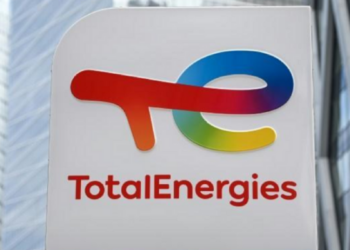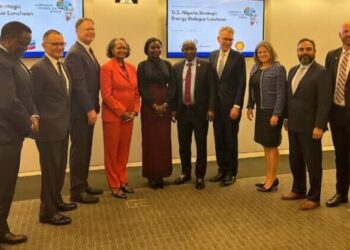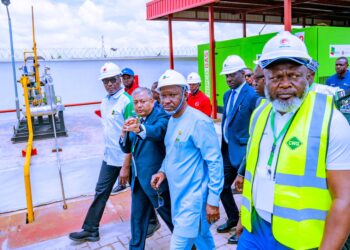The joint venture between the Nigerian National Petroleum Company Limited and TotalEnergies has accomplished the end of routine gas flaring across all its assets.
This milestone was disclosed during an inspection of the Oil Mining Lease (OML) 100 in the southeastern Niger Delta, off Port Harcourt, by a combined team from NNPC Ltd and TotalEnergies.
The Chief Corporate Communications Officer of NNPC Ltd, Olufemi Soneye, made this announcement in a statement released on Thursday in Abuja. The inspection aimed to verify the effectiveness of the OML Flare Reduction Project, which was launched in December 2023.
According to Soneye, this achievement aligns with the objectives of reducing greenhouse gas emissions by 20% (unconditional) and 47% (conditional), as outlined in the Nationally Determined Contribution under the Paris Accord signed during the administration of President Bola Tinubu.
- The statement reads, “The NNPC Ltd/TotalEnergies Joint Venture, which is the concession holder of four leases, had hitherto achieved zero routine flaring across OML 99 (2006), OML 102 (2014), and OML 58 (2016), leaving OML 100 as the only lease with routine flaring going on.
- “The significance of this achievement is that the last routine flare volume of about 12MMscf/d (twelve million standard cubic feet per day) of gas has now been eliminated giving rise to a greenhouse gas emissions reduction of about 341KtCO₂e/yr.
- “The achievement is an outcome of a programme introduced by the NNPC Ltd. to galvanize action towards achieving the zero routine flare by 2030 across its portfolio of assets.”
What you should know
- Nigeria has been flaring gas since the 1950s as a result of the inability to utilise the product to generate electricity. In July 2023, the speaker of the House of Reps stated that Nigeria loses around $2.5 billion annually to gas flaring.
- Beyond the monetary cost, gas flaring negatively affects the environment and health of people living around flare sites. A world bank publication revealed that there is significant correlation between gas flaring and rampant cases of respiratory illness, fever and cough among children living in communities with flare sites.
- Other medical studies show relationship between living in communities with flare sites and being hypertensive.
- Nigeria has had fines in place to discourage gas flaring since 1969 and since 1984, it has been illegal to flare gas without the written permission of the Minister of Petroleum resources. The current fee for gas flaring stands at $2 per 1000 scf of gas.
- Significant progress has been made in reducing gas flaring. Between 2012 and 2015, Nigeria reduced flared gas by 2 billion cubic meters according to the world bank and another study revealed that Nigeria reduced gas flaring by 30% between 2012 and 2021.
















.gif)






